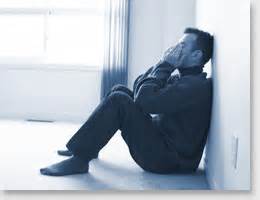Experiencing “the blues” once in a while is normal, especially after a traumatic or stressful event like the death of a loved one or the loss of a job. Depression, however, is a serious and debilitating condition that must be addressed as soon as possible. Here are some tips for managing depression and coping when a depressive episode strikes.
Six And True Tips For Managing Depression
 1. Seek professional help for depression symptoms that last longer than a week. Feelings of malaise, hopelessness, worthlessness and sadness should not go unchecked. Find a therapist, psychiatrist or another mental health professional who can help you with talk therapy, medications, or a combination of approaches. If you aren’t sure where to turn, ask your local health department, hospital, family doctor or another resource for options in your area. If you have any thoughts of suicide, how to managing depression helpline – call 911 or go immediately to an emergency room for help.
1. Seek professional help for depression symptoms that last longer than a week. Feelings of malaise, hopelessness, worthlessness and sadness should not go unchecked. Find a therapist, psychiatrist or another mental health professional who can help you with talk therapy, medications, or a combination of approaches. If you aren’t sure where to turn, ask your local health department, hospital, family doctor or another resource for options in your area. If you have any thoughts of suicide, how to managing depression helpline – call 911 or go immediately to an emergency room for help.
2. Tell a friend or loved one how you are feeling. While speaking up about your depression can be extremely difficult, having someone to whom you can turn is important. You may need some help with housework, cooking, caring for your children, or getting to and from your appointments, and your family and friends can help you with these responsibilities if you cannot managing depression on your own. Do not attempt to keep your struggles to yourself for fear of burdening others; those who love you most would never want you to suffer alone.
3. Find a “happy place” that you can easily visit. A serene park, a quiet coffee shop, the library or any place that makes you feel calm and peaceful can be a welcome refuge when you are depressed. Getting out of the house is important, even if you don’t feel up to interacting with others. If you do feel like being social, consider volunteering at a nursing home, animal shelter, soup kitchen or another place where you feel valued and important. This can boost your self-esteem and give you a social outlet.
4. Do not self-medicate with drugs or alcohol. Unlike medications prescribed by your doctor, alcohol and drugs provide only short-lived relief. These substances, especially those that depress your central nervous system, can make you feel even worse. They can also lead to addiction, compounding your problems even further.
5. Know that you are not alone. Millions of people suffer from depression and other mental illnesses. The chances are good that someone in your own family, circle of friends, or workplace has dealt with it, too, whether directly or indirectly. Don’t assume that no one knows what you’re going through or that they won’t understand.
6. Remind yourself that your depression is not your fault. Depression is not something that you can control, will away, or bring on yourself, so avoid blaming yourself. This will only worsen your feelings and make it more difficult to recover.
Beating depression takes time, help for managing depression, and patience, but you can recover from your illness and rediscover what it feels like to be happy. Use these steps to help you find the light at the end of the tunnel.